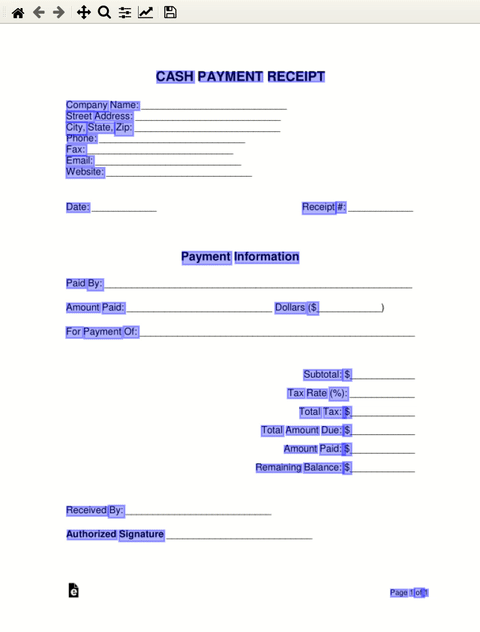Onnx Text Recognition (OnnxTR): docTR Onnx-Wrapper for high-performance OCR on documents.
Project description

:warning: Please note that this is wrapper around the doctr library to provide a Onnx pipeline for docTR. For feature requests, which are not directly related to the Onnx pipeline, please refer to the base project.
Optical Character Recognition made seamless & accessible to anyone, powered by Onnx
What you can expect from this repository:
- efficient ways to parse textual information (localize and identify each word) from your documents
- a Onnx pipeline for docTR, a wrapper around the doctr library
- more lightweight package with faster inference latency and less required resources
Installation
Prerequisites
Python 3.9 (or higher) and pip are required to install OnnxTR.
Latest release
You can then install the latest release of the package using pypi as follows:
NOTE: For GPU support please take a look at: ONNX Runtime. Currently supported execution providers by default are: CPU, CUDA
pip install onnxtr[cpu]
# with gpu support
pip install "onnxtr[gpu]"
# with HTML support
pip install "onnxtr[html]"
# with support for visualization
pip install "onnxtr[viz]"
# with support for all dependencies
pip install "onnxtr[html, gpu, viz]"
Reading files
Documents can be interpreted from PDF / Images / Webpages / Multiple page images using the following code snippet:
from onnxtr.io import DocumentFile
# PDF
pdf_doc = DocumentFile.from_pdf("path/to/your/doc.pdf")
# Image
single_img_doc = DocumentFile.from_images("path/to/your/img.jpg")
# Webpage (requires `weasyprint` to be installed)
webpage_doc = DocumentFile.from_url("https://www.yoursite.com")
# Multiple page images
multi_img_doc = DocumentFile.from_images(["path/to/page1.jpg", "path/to/page2.jpg"])
Putting it together
Let's use the default pretrained model for an example:
from onnxtr.io import DocumentFile
from onnxtr.models import ocr_predictor
model = ocr_predictor(
det_arch='fast_base', # detection architecture
rec_arch='vitstr_base', # recognition architecture
det_bs=4, # detection batch size
reco_bs=1024, # recognition batch size
assume_straight_pages=True, # set to `False` if the pages are not straight (rotation, perspective, etc.) (default: True)
straighten_pages=False, # set to `True` if the pages should be straightened before final processing (default: False)
preserve_aspect_ratio=True, # set to `False` if the aspect ratio should not be preserved (default: True)
symmetric_pad=True, # set to `False` to disable symmetric padding (default: True)
# DocumentBuilder specific parameters
resolve_lines=True, # whether words should be automatically grouped into lines (default: True)
resolve_blocks=True, # whether lines should be automatically grouped into blocks (default: True)
paragraph_break=0.035, # relative length of the minimum space separating paragraphs (default: 0.035)
)
# PDF
doc = DocumentFile.from_pdf("path/to/your/doc.pdf")
# Analyze
result = model(doc)
# Display the result (requires matplotlib & mplcursors to be installed)
result.show()
Or even rebuild the original document from its predictions:
import matplotlib.pyplot as plt
synthetic_pages = result.synthesize()
plt.imshow(synthetic_pages[0]); plt.axis('off'); plt.show()
The ocr_predictor returns a Document object with a nested structure (with Page, Block, Line, Word, Artefact).
To get a better understanding of the document model, check out documentation:
You can also export them as a nested dict, more appropriate for JSON format / render it or export as XML (hocr format):
json_output = result.export() # nested dict
text_output = result.render() # human-readable text
xml_output = result.export_as_xml() # hocr format
for output in xml_output:
xml_bytes_string = output[0]
xml_element = output[1]
Loading custom exported models
You can also load docTR custom exported models: For exporting please take a look at the doctr documentation.
from onnxtr.models import ocr_predictor, linknet_resnet18, parseq
reco_model = parseq("path_to_custom_model.onnx", vocab="ABC")
det_model = linknet_resnet18("path_to_custom_model.onnx")
model = ocr_predictor(det_model=det_model, reco_model=reco_model)
Models architectures
Credits where it's due: this repository is implementing, among others, architectures from published research papers.
Text Detection
- DBNet: Real-time Scene Text Detection with Differentiable Binarization.
- LinkNet: LinkNet: Exploiting Encoder Representations for Efficient Semantic Segmentation
- FAST: FAST: Faster Arbitrarily-Shaped Text Detector with Minimalist Kernel Representation
Text Recognition
- CRNN: An End-to-End Trainable Neural Network for Image-based Sequence Recognition and Its Application to Scene Text Recognition.
- SAR: Show, Attend and Read:A Simple and Strong Baseline for Irregular Text Recognition.
- MASTER: MASTER: Multi-Aspect Non-local Network for Scene Text Recognition.
- ViTSTR: Vision Transformer for Fast and Efficient Scene Text Recognition.
- PARSeq: Scene Text Recognition with Permuted Autoregressive Sequence Models.
predictor = ocr_predictor()
predictor.list_archs()
{
'detection archs':
[
'db_resnet34',
'db_resnet50',
'db_mobilenet_v3_large',
'linknet_resnet18',
'linknet_resnet34',
'linknet_resnet50',
'fast_tiny',
'fast_small',
'fast_base'
],
'recognition archs':
[
'crnn_vgg16_bn',
'crnn_mobilenet_v3_small',
'crnn_mobilenet_v3_large',
'sar_resnet31',
'master',
'vitstr_small',
'vitstr_base',
'parseq'
]
}
Documentation
This repository is in sync with the doctr library, which provides a high-level API to perform OCR on documents. This repository stays up-to-date with the latest features and improvements from the base project. So we can refer to the doctr documentation for more detailed information.
NOTE:
pretrainedis the default in OnnxTR, and not available as a parameter.- docTR specific environment variables (e.g.: DOCTR_CACHE_DIR -> ONNXTR_CACHE_DIR) needs to be replaced with
ONNXTR_prefix.
Benchmarks
COMING SOON
Citation
If you wish to cite please refer to the base project citation, feel free to use this BibTeX reference:
@misc{doctr2021,
title={docTR: Document Text Recognition},
author={Mindee},
year={2021},
publisher = {GitHub},
howpublished = {\url{https://github.com/mindee/doctr}}
}
License
Distributed under the Apache 2.0 License. See LICENSE for more information.
Project details
Release history Release notifications | RSS feed
Download files
Download the file for your platform. If you're not sure which to choose, learn more about installing packages.
Source Distribution
Built Distribution
File details
Details for the file onnxtr-0.1.1.tar.gz.
File metadata
- Download URL: onnxtr-0.1.1.tar.gz
- Upload date:
- Size: 66.8 kB
- Tags: Source
- Uploaded using Trusted Publishing? No
- Uploaded via: twine/5.0.0 CPython/3.9.19
File hashes
| Algorithm | Hash digest | |
|---|---|---|
| SHA256 | 8fd83a89cbb2e89e30b53f4d4ed16cd47f53bf0cdef94c2a5c6fbd538f57a09c |
|
| MD5 | 574a6f0cb6d5e54e58584ff40b5708f1 |
|
| BLAKE2b-256 | e6b757f209964dd82044ee4f2304b6cb9361cf2c361f087d8a0b5d8e1fa514f6 |
File details
Details for the file onnxtr-0.1.1-py3-none-any.whl.
File metadata
- Download URL: onnxtr-0.1.1-py3-none-any.whl
- Upload date:
- Size: 90.5 kB
- Tags: Python 3
- Uploaded using Trusted Publishing? No
- Uploaded via: twine/5.0.0 CPython/3.9.19
File hashes
| Algorithm | Hash digest | |
|---|---|---|
| SHA256 | 24569a618303119ee4a343131578db6041132a89cf12cdaeda844a6c7599474a |
|
| MD5 | 6dc77d1ea2f30fb56b2ee95821275b20 |
|
| BLAKE2b-256 | 8ece46dc7693ed89502641c6693eaa0d1430a58cf72174e9d9dbbfcb8af78b96 |




















